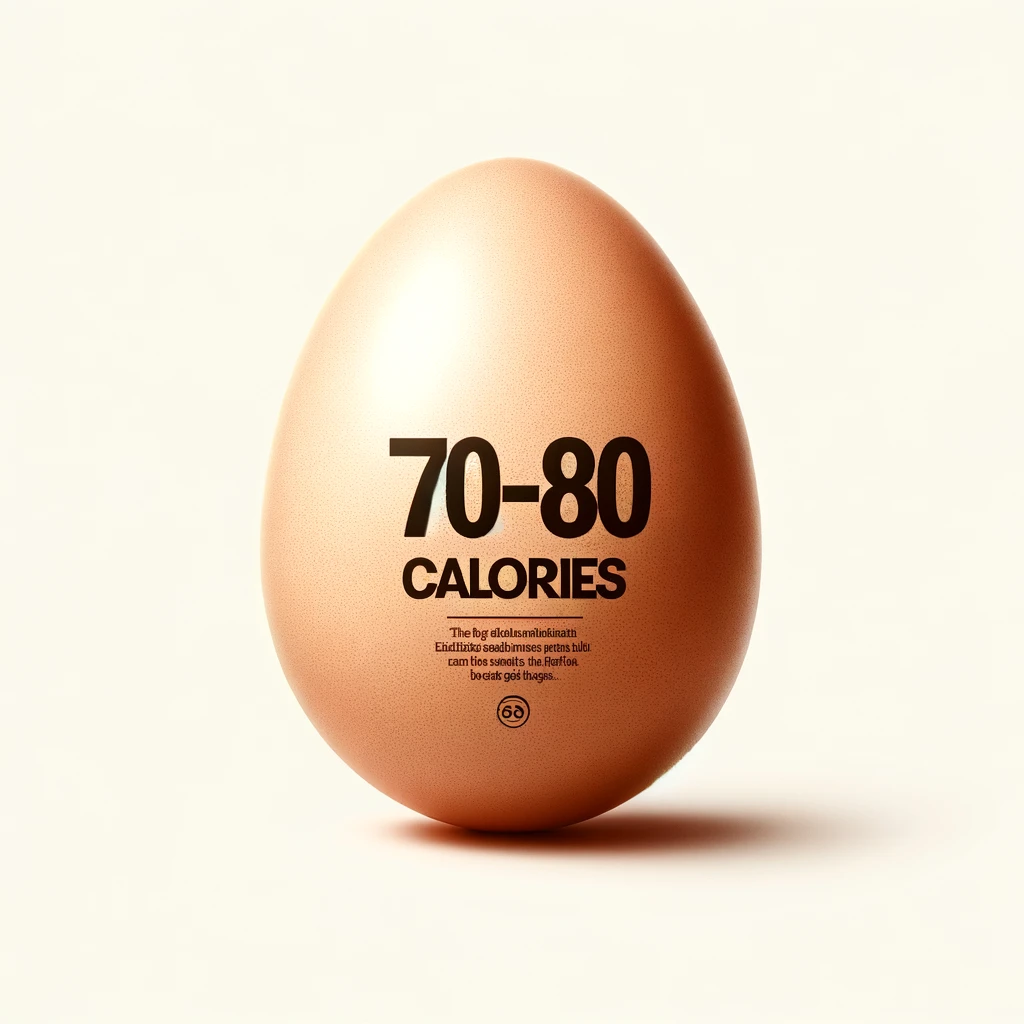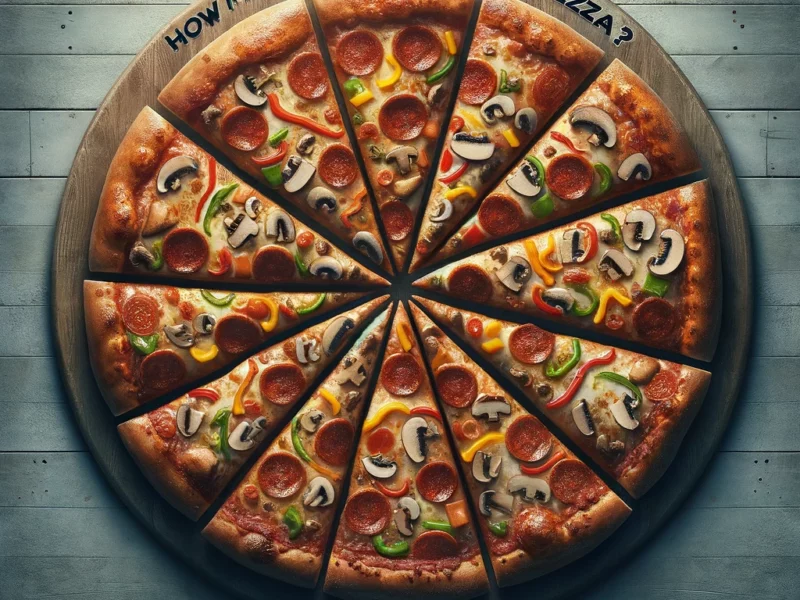How many calories are in an egg? The egg is a rich source of protein. By eating just the right amount, you get to have the nutritional value that you need. Almost all kinds of dishes are served to make use of eggs. In the morning, you can either boil an egg or have a fried egg. You can also add eggs to any of your favorite dishes. But you also need to be careful since eggs have fats and calories too – around 72 calories in each egg (1 large, raw – 50 g).
How Many Calories in an Egg – Nutrition Facts

Eggs are a popular and versatile food, packed with nutrition despite their small size. Let’s crack into the calorie count and nutrition facts of a standard large egg to see what’s inside!
Calories: A large egg typically contains about 70 to 80 calories. The exact number can vary slightly based on the size of the egg.
Protein: Eggs are an excellent source of high-quality protein. One large egg offers around 6 grams of protein, which is about 12% of the daily recommended intake for most adults. Protein is crucial for muscle repair, immune function, and overall growth.
Fats: There are about 5 grams of fat in a large egg. Most of this fat is found in the yolk and is predominantly unsaturated fat, which is good for heart health. The yolk also contains cholesterol, something to keep in mind if you are monitoring your cholesterol intake.
Vitamins and Minerals: Eggs are like nature’s multivitamin! They are rich in vitamin B12, which is important for brain function and the creation of DNA. They also have a good amount of vitamin D, which helps in calcium absorption and bone health. Other nutrients include selenium, which protects your cells from damage, and choline, which aids brain development and liver function.
Why Should You Eat Egg
Eating eggs has a lot of benefits! Here’s why they’re a great addition to your diet:
- Nutrient Rich: Eggs are loaded with nutrients, providing a bit of almost every vitamin and mineral your body needs. This includes vitamins B12 and D, selenium, and choline, which support everything from your brain to your bones.
- High-Quality Protein: Eggs are one of the best sources of protein, helping to build and repair tissues like muscle and skin. Protein also helps you feel full and satisfied after meals, which can support weight management.
- Good for Your Eyes: Eggs contain antioxidants like lutein and zeaxanthin, which are good for eye health. They help protect against damage that can lead to cataracts and other eye problems as you age.
- Versatile and Convenient: Eggs are incredibly versatile and can be cooked in many ways to suit different meals. They’re also quick to cook, making them a convenient option for busy people.
- Affordable: Eggs are relatively inexpensive compared to other high-protein foods, making them a budget-friendly option for adding quality nutrition to your diet.
- Brain Health: The choline in eggs is important for brain function, including memory and mood. Not many foods are as rich in choline as eggs are.
Eggs are considered to be superfoods. They contain different vitamins and minerals that your body needs.
In eating a huge boiled egg, you have 6% of the RDA of vitamin A, 5% of the folate, and 7% of the RDA of vitamin B5. It has other vitamins and minerals like vitamin B2, phosphorus, selenium, vitamin K, calcium, and vitamin D.
Contrary to what some may think, eggs may be high in cholesterol but that’s not a bad thing for your blood cholesterol; it’s just a matter of eating the right amount or eating eggs in moderation so you don’t end up raising your cholesterol level.
Some studies show that 70% of people don’t experience an increase in cholesterol when they eat eggs.
When you eat just the right amount you can raise just the good cholesterol level needed by your body.
By increasing the HDL level, you can reduce your risk of having stroke, heart disease, and other cardiovascular illnesses.
High in Protein
Eggs are often praised for being high in protein, which means they provide a significant amount of protein relative to their size. Each large egg contains about 6 grams of protein. Protein is essential for building and repairing tissues in your body, supporting muscle growth, and helping you feel full and satisfied after eating. This makes eggs a fantastic, nutrient-rich food choice for meals and snacks, contributing to a balanced diet while supporting overall health and fitness goals.
Eating Eggs and Weight Loss
Eating eggs can be a smart strategy if you’re looking to lose weight, and here’s why in a simple and interesting way:
1. Packed with Protein: Eggs are rich in high-quality protein, which is key for weight loss. Protein helps you feel full and satisfied after meals, reducing the urge to snack on less healthy options. It also aids in building muscle, which can boost your metabolism.
2. Low in Calories: A single large egg contains about 70 to 80 calories yet is very filling. Starting your day with eggs might mean you’ll naturally eat fewer calories later in the day.
3. Versatile and Delicious: Eggs are incredibly versatile. You can boil, scramble, poach, or bake them. This variety can keep your diet interesting and prevent boredom, which is a big plus when you’re trying to stick to a healthy eating plan.
4. Boosts Metabolism: The protein in eggs not only helps with satiety but also has a higher thermic effect than fat or carbs. This means your body uses more energy to digest protein, which can slightly boost your metabolism.
How Many Calories in a Hard-Boiled Egg
Many are concerned with calories, especially if they want to add a hard-boiled egg. So, how many calories are in a hard-boiled egg?
A hard-boiled egg has a lot of nutrition. You thoroughly cook the egg to solidify both the yolk and the white egg.
This is a very popular choice, especially if you want to have a heavy and nutritious breakfast. You can also add a hard-boiled egg to your choice of salad.
A hard-boiled egg has 78 calories with 7% fat.
It also has 62% cholesterol so make sure that you do not eat a lot. Other vitamins include iron, vitamin C, vitamin A, and calcium.
How Many Calories in a Fried Egg
You also have the choice to fry your egg. A fried egg paired with bread or rice can be a really good breakfast meal.
However, you should be careful since frying your egg means you are consuming more calories.
For a large fried egg, you can expect about 90 calories.
The cholesterol level is also higher if you decide to fry your egg.
Eating in Moderation
With all the benefits mentioned, eating eggs is definitely recommended. It’s highly nutritious and gives you certain vitamins and minerals that you cannot find in other foods.
But you also need to be careful when it comes to the number of eggs that you can eat in a day. According to health experts, eating 3 whole eggs in a day is safe.
There is no solid evidence to show that eating this amount can be harmful or detrimental to your health. If you have a high cholesterol level, you can always consult your doctor so you know just the right amount of egg to eat.
Egg is a very flexible food since there are so many ways to eat and prepare it. You can either boil or fry it.
On top of that, you may also want to add eggs to any of your recipes. There are different egg dishes that you can find so you can have a nutritious meal packed with a lot of nutrients which is very healthy for your body.


